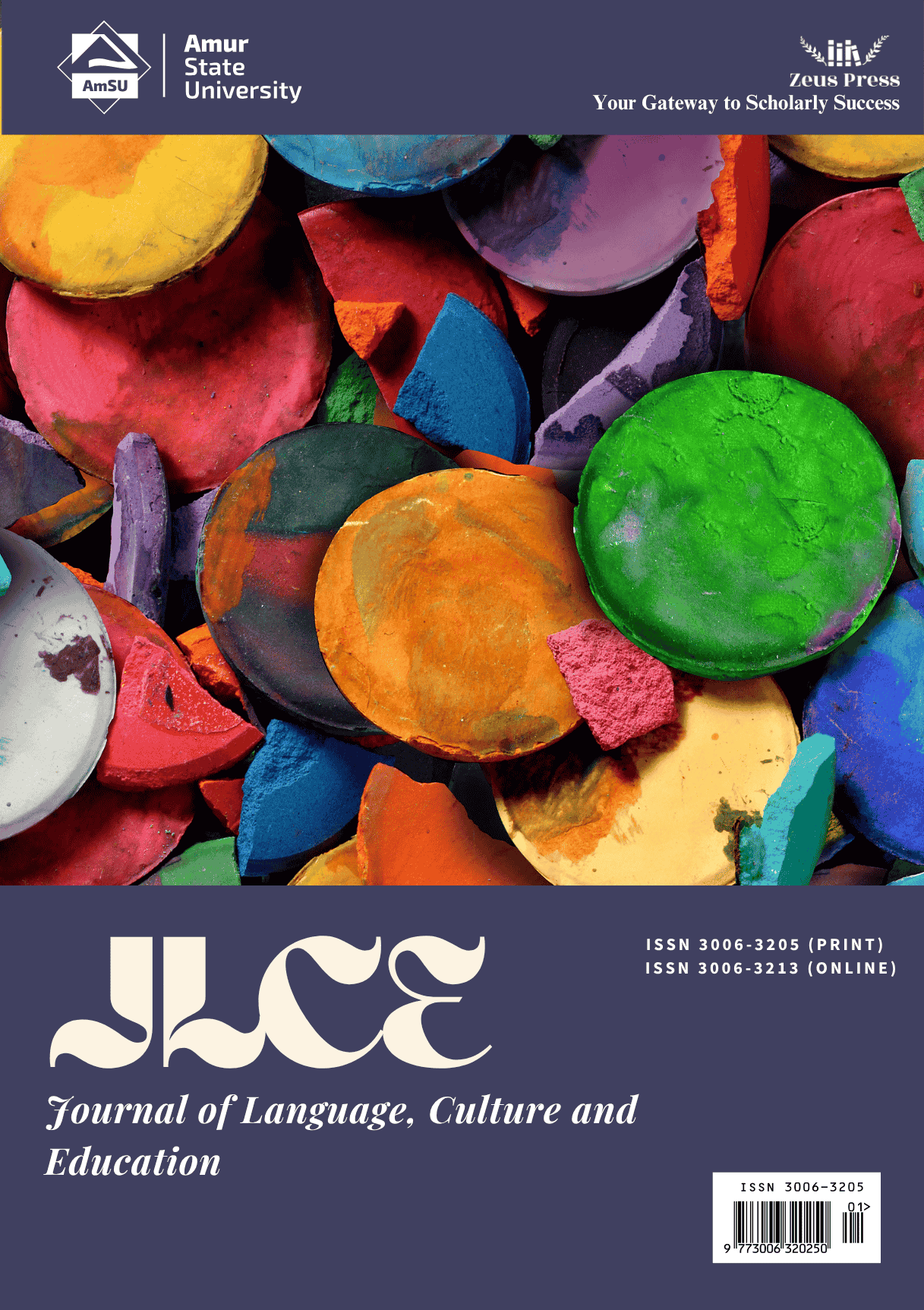Causes and Effects of Boredom in Online Foreign Language Learning: A Systematic Review and Future Perspectives
Main Article Content
Keywords
boredom in foreign language classrooms, online teaching interventions, factors influencing boredom, individual learner differences, impact of the teaching environment, applied linguistics
Abstract
In recent years, boredom in online foreign language learning has become a prominent area of research. An in-depth discussion of the current status of research on boredom in online language learning can both enhance the theoretical contributions to applied linguistics and explore practical strategies for reducing boredom and improving the quality of online teaching. This paper adopts a literature review methodology to select high-quality research published during the period of 2020--2025, summarizing the research themes from four dimensions: the definition and dynamic changes in boredom, its relationship with learner-related factors, its interaction with environmental factors, and its impact on learning effectiveness. This review systematically analyses the research subjects and methods used in these studies. The findings indicate that most existing studies have focused on college students, with a heavy reliance on quantitative methods such as questionnaires and a lack of qualitative and interdisciplinary approaches. Additionally, current research tends to overlook the specific characteristics of boredom as related to particular foreign language skills and online platforms. Future research should further expand the themes and adopt multidisciplinary research approaches to offer a more comprehensive understanding.
References
- Chansaengsee, S. (2023). Boredom in online activity during COVID-19 outbreak causing dysfunctional behaviors of adolescent students: Phenomenological study to the creation of virtual reality classroom. European Journal of Psychology of Education, 38(4), 1749-1770. https://doi.org/10.1007/S10212-022-00673-2
- Derakhshan, A., Kruk, M., Mehdizadeh, M., & Pawlak, M. (2021). Boredom in online classes in the Iranian EFL context: Sources and solutions. System, 101, Article 102556. https://doi.org/10.1016/j.system.2021.102556
- Dewaele, J. M., & Li, C. (2020). Emotions in second language acquisition: A critical review and research agenda. Foreign language world, 196(1), 34-49.
- Farmer, R., & Sundberg, N. D. (1986). Boredom proneness-the development and correlates of a new scale. Journal of Personality Assessment, 50(1), 4-17. https://doi.org/10.1207/S15327752JPA5001_2
- Gao, Y., Li, L., & Lü, J. (2001). Trends in research methods in applied linguistics: China and the west. English for Specific Purposes, 20(1), 1-14. https://doi.org/10.1016/S0889-4906(99)00015-0
- Gao, Z., & Li, J. (2016). English classroom anxiety of Chinese learners: Flipped vs. Traditional. Technol Enhanc Foreign Lang, 167, 37-42.
- Goetz, T., Frenzel, A. C., Hall, N. C., Nett, U. E., Pekrun, R., & Lipnevich, A. A. (2014). Types of boredom: An experience sampling approach. Motivation and Emotion, 38(3), 401-419. https://doi.org/10.1007/S11031-013-9385-Y
- Kruk, M., Majid, E. S., Miroslaw, P., Tahereh, T., & and Yazdanmehr, E. (2024). A longitudinal study of the subdomains of boredom in practical English language classes in an online setting: A factor of curves latent growth modeling. Journal of Multilingual and Multicultural Development, 45(5), 1633-1647. https://doi.org/10.1080/01434632.2021.2006404
- Li, C. (2021). A control-value theory approach to boredom in English classes among university students in China. The Modern Language Journal, 105(1), 317-334.
- Li, C., & Dewaele, J. M. (2020). The predictive effects of trait emotional intelligence and online learning achievement perceptions on foreign language class boredom among Chinese university students. Foreign Languages and Foreign Language Teaching, 5, 33-44.
- Li, C., & Lu, X. (2022). Foreign language learning boredom: A scoping review. Foreign Language Education, 43(6), 70-77.
- Li, C. C., & Ye, H. (2022). The predictive effects of foreign language enjoyment, anxiety, and boredom on learning outcomes in online English classrooms. Modern Foreign Languages, 45(2), 207-219.
- Li, M., & Li, Y. (2024). The influence of external factors on foreign language learning boredom in 12th graders′ online classes. Journal of Tianjin Academic of Educational Science, 36(1), 72-80.
- Pekrun, R. (2006). The control-value theory of achievement emotions: Assumptions, corollaries, and implications for educational research and practice. Educational Psychology Review, 18(4), 315-341. https://doi.org/10.1007/S10648-006-9029-9
- Pekrun, R., Goetz, T., Daniels, L. M., Stupnisky, R. H., & Perry, R. P. (2010). Boredom in achievement settings: Exploring control-value antecedents and performance outcomes of a neglected emotion. Journal of Educational Psychology, 102(3), 531-549. https://doi.org/10.1037/A0019243
- Putwain, D. W., Becker, S., Symes, W., & Pekrun, R. (2018). Reciprocal relations between students’ academic enjoyment, boredom, and achievement over time. Learning and Instruction, 54, 73-81. https://doi.org/10.1016/j.learninstruc.2017.08.004
- Solhi, M. (2024). The impact of EFL learners’ negative emotional orientations on (un)willingness to communicate in In-person and online L2 learning contexts. Journal of Psycholinguistic Research, 53(2), Article 26. https://doi.org/10.1007/s10936-024-10071-y
- Wang, H. (2023). A comparative study on boredom of college english learners in online and offline teaching modes [Unpublished master's thesis, Dalian University of Foreign Languages]. Dalian.
- Wang, X., & Hui, L. (2024). Buoyancy and engagement in online English learning: The mediating roles and complex interactions of anxiety, enjoyment, and boredom. System, 125, Article 103418. https://doi.org/10.1016/J.SYSTEM.2024.103418
- Wang, Y. (2024). Probing into the boredom of online instruction among Chinese English language teachers during the covid-19 pandemic. Current Psychology, 43(13), 12144-12158. https://doi.org/10.1007/S12144-022-04223-3
- Wen, Q. F., & Wang, L. F. (2004). SLA research methods over 35 years: Looking back and ahead. Journal of Foreign Languages, (3), 18-25.


